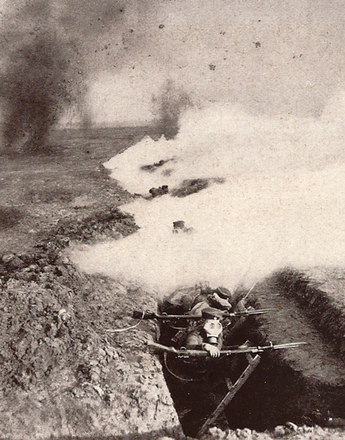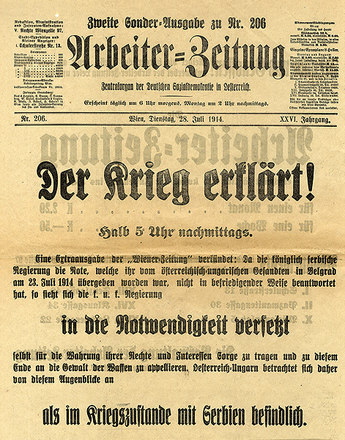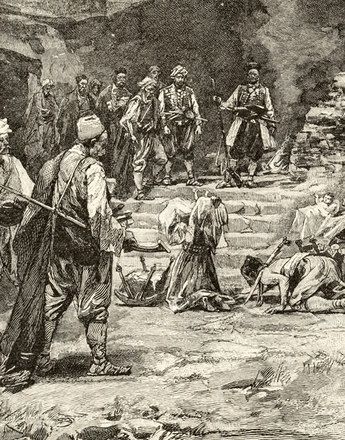On 23 July 1914 the Austro-Hungarian government issued Serbia with an ultimatum containing concrete demands in order to prevent an escalation. When the ultimatum is examined closely, it becomes clear that Vienna was concerned to make the demands as unacceptable as possible.
Austria’s demands were formulated in six points:
The Serbian government was required to officially distance itself from the political campaign to unite the southern Slav peoples under Serbian leadership, which was a challenge to the territorial integrity of Austria-Hungary.
In further points the ultimatum demanded the purging of the Serbian army and civil service of anti-Austrian agitators and the suppression of anti-Austrian propaganda in the Serbian press.
In a point directly related to the assassination, the Serbian government was called upon to track down and take legal proceedings against extremist secret organizations operating against Austria.
The sixth point in particular was formulated in such a way as to make Serbian acceptance unlikely. The demand was that Austrian officials should take part in the investigation into the assassination and in the hunting down and prosecution of the ring-leaders on Serbian territory, which would have infringed Serbia’s state sovereignty.
Serbia was required to react within 48 hours. The initial consequence of Serbia not accepting the demands was to be the breaking off of diplomatic relations. Although there was no explicit threat of war, it was clear that this would be the next step.
The naive last hopes of the conflict being restricted to local hostilities between Serbia and Austria evaporated at the very latest on 24 July, that is to say, before the 48-hour deadline, when Russia, Serbia’s most important ally, ordered a partial mobilization. At this point it was clear that any further steps would lead to an escalation with catastrophic results.
Serbia’s answer arrived within the 48-hour period on 25 July, accepting the majority of the demands but rejecting the final point concerning the participation of Austrian officials in investigations on Serbian sovereign territory. There was surprise that Serbia had gone so far in their acceptance of the demands but the Austrian foreign minister’s refusal to countenance the idea of further negotiations made it clear that Vienna was not interested in a diplomatic solution.
Translation: Peter John Nicholson
Bihl, Wolfdieter: Der Erste Weltkrieg 1914–1918. Chronik – Daten – Fakten, Wien/Köln/Weimar 2010
Leidinger Hannes/Moritz, Verena: Der Erste Weltkrieg, Wien [u.a.] 2011
Rauchensteiner, Manfried: Der Erste Weltkrieg und das Ende der Habsburgermonarchie 1914–1918, Wien u. a. 2013




